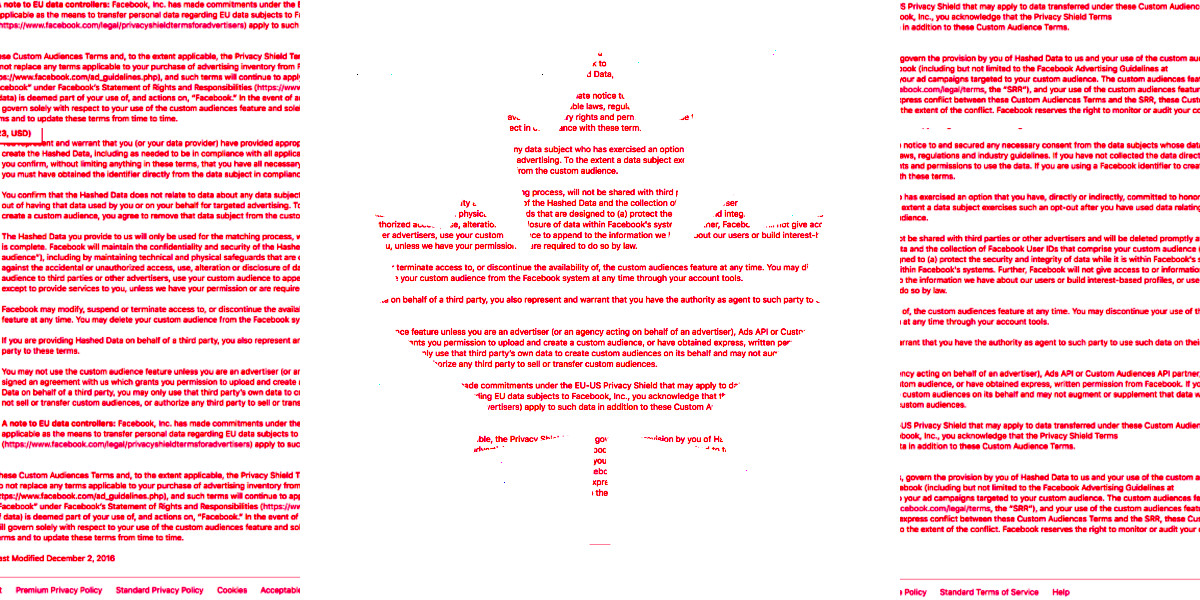
Today's Twitter threads (a Twitter thread).
Inside: Cross-Media Sci-Fi with Amber Benson and John Rogers; Storage Wars; Embedded machine learning; and more!
Archived at: pluralistic.net/2020/11/17/u-s…
#Pluralistic
1/
Inside: Cross-Media Sci-Fi with Amber Benson and John Rogers; Storage Wars; Embedded machine learning; and more!
Archived at: pluralistic.net/2020/11/17/u-s…
#Pluralistic
1/

I'm giving a keynote ("Monopolies, not mind-control") at the Data Natives conference tomorrow:
datanatives.io/conference/sch…
2/
datanatives.io/conference/sch…
2/

Cross-Media Sci-Fi with Amber Benson and John Rogers: The Attack Surface Lectures continue.
3/
https://twitter.com/doctorow/status/1328679344894406656
3/

Storage Wars: The eviction epidemic comes to New York's self-storage lockers.
4/
https://twitter.com/doctorow/status/1328702707331260416
4/

Embedded machine learning: Offline, low-powered and ubiquitous.
5/
https://twitter.com/doctorow/status/1328709980896198656
5/

#15yrsago Schneier: Why didn’t anti-virus apps defend us against Sony’s rootkit? web.archive.org/web/2005112412…
#15yrsago Sony still advising public to install rootkits web.archive.org/web/2005112405…
#15yrsago 5000 music cylinders digitized and posted cylinders.library.ucsb.edu
6/
#15yrsago Sony still advising public to install rootkits web.archive.org/web/2005112405…
#15yrsago 5000 music cylinders digitized and posted cylinders.library.ucsb.edu
6/

#10yrsago Understanding COICA, America’s horrific proposed net-censorship bill eff.org/deeplinks/2010…
#10yrsago Is Batman’s evidence admissible in court? lawandthemultiverse.com/2015/11/16/bat…
#5yrsago The Internet will always suck locusmag.com/2015/11/cory-d…
7/
#10yrsago Is Batman’s evidence admissible in court? lawandthemultiverse.com/2015/11/16/bat…
#5yrsago The Internet will always suck locusmag.com/2015/11/cory-d…
7/

#5yrsago Hello From the Magic Tavern: hilarious, addictive improv podcast memex.craphound.com/2015/11/16/hel…
#5yrsago 500 phrases from scientific publications that are correlated with bullshit mchankins.wordpress.com/2013/04/21/sti…
8/
#5yrsago 500 phrases from scientific publications that are correlated with bullshit mchankins.wordpress.com/2013/04/21/sti…
8/

#5yrsago There is no record of US mass surveillance ever preventing a large terror attack theintercept.com/2015/11/17/u-s…
#5yrsago How Hamilton, ON’s violent “accountability” councilor intimidated a journalist out of City Hall canadaland.com/podcast/report…
9/
#5yrsago How Hamilton, ON’s violent “accountability” councilor intimidated a journalist out of City Hall canadaland.com/podcast/report…
9/

#5yrsago The final Pratchett: The Shepherd’s Crown memex.craphound.com/2015/11/17/the…
#1yrago Supercut of British voters insulting Boris Johnson on the campaign trail
10/
#1yrago Supercut of British voters insulting Boris Johnson on the campaign trail
https://twitter.com/TheIDSmiths/status/1194954125772853248
10/

#1yrago China is still harvesting organs from prisoners and covering it up forbes.com/sites/zakdoffm…
#1yrago Extinction Rebellion floats a drowned house down the Thames extinctionrebellion.uk/2019/11/10/act…
11/
#1yrago Extinction Rebellion floats a drowned house down the Thames extinctionrebellion.uk/2019/11/10/act…
11/

Yesterday's threads: Jeremy Meyer's typewriter assemblages; HHS to pharma: stop bribing writing docs; The Attack Surface Lectures; Youtube-dl is back; Someone Comes to Town Part 23; and more!
12/
https://twitter.com/doctorow/status/1328461642862972929
12/

My latest novel is Attack Surface, a sequel to my bestselling Little Brother books. @washingtonpost called it "a political cyberthriller, vigorous, bold and savvy about the limits of revolution and resistance."
Get signed books from @darkdel: darkdel.com/store/p1840/Av…
13/
Get signed books from @darkdel: darkdel.com/store/p1840/Av…
13/
I have a (free) new book out! "How to Destroy Surveillance Capitalism" is an anti-monopolist critique of Big Tech that connects the rise of conspiratorial thinking to the rise of tech monopolies and proposes a way to deal with both:
onezero.medium.com/how-to-destroy…
14/
onezero.medium.com/how-to-destroy…
14/
My ebooks and audiobooks (from @torbooks, @HoZ_Books, @mcsweeneys, and others) are for sale all over the net, but I sell 'em too, and when you buy 'em from me, I earn twice as much and you get books with no DRM and no license "agreements."
craphound.com/shop/
15/
craphound.com/shop/
15/

Upcoming appearances:
* Keynote, Data Natives, Nov 18, datanatives.io/tickets/
* Keynote, Cologne Futures, Nov 27, details TBD
* Keynote, Cybersummit 2020, Nov 26 cybera.ca/cyber-summit-2…
16/
* Keynote, Data Natives, Nov 18, datanatives.io/tickets/
* Keynote, Cologne Futures, Nov 27, details TBD
* Keynote, Cybersummit 2020, Nov 26 cybera.ca/cyber-summit-2…
16/

Recent appearances:
* Fully Charged: The future of energy over the next 300 years
fullycharged.show/podcasts/podca…
* Allen School Distinguished Lecture "Early Onset Oppenheimers"
* Author Stories Podcast
17/
* Fully Charged: The future of energy over the next 300 years
fullycharged.show/podcasts/podca…
* Allen School Distinguished Lecture "Early Onset Oppenheimers"
* Author Stories Podcast
17/

My first picture book is out! It's called Poesy the Monster Slayer and it's an epic tale of bedtime-refusal, toy-hacking and monster-hunting, illustrated by Matt Rockefeller. It's the monster book I dreamt of reading to my own daughter.
pluralistic.net/2020/07/14/poe…
18/
pluralistic.net/2020/07/14/poe…
18/

You can also follow these posts as a daily blog at pluralistic.net: no ads, trackers, or data-collection!
Here's today's edition: pluralistic.net/2020/11/17/u-s…
19/
Here's today's edition: pluralistic.net/2020/11/17/u-s…
19/
If you prefer a newsletter, subscribe to the plura-list, which is also ad- and tracker-free, and is utterly unadorned save a single daily emoji. Today's is "🦐". Suggestions solicited for future emojis!
Subscribe here: pluralistic.net/plura-list
20/
Subscribe here: pluralistic.net/plura-list
20/
Are you trying to wean yourself off Big Tech? Follow these threads on the #fediverse at @pluralistic@mamot.fr.
Here's today's edition: mamot.fr/@pluralistic/1…
21/
Here's today's edition: mamot.fr/@pluralistic/1…
21/
• • •
Missing some Tweet in this thread? You can try to
force a refresh










